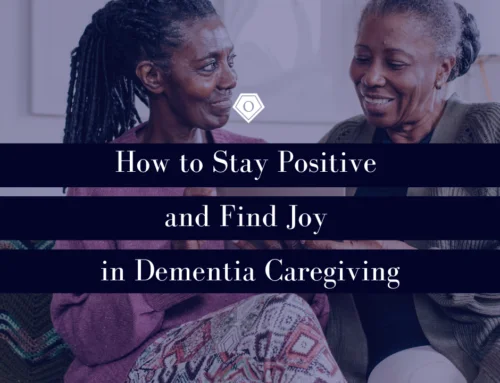In the collaborative effort to support seniors grappling with dementia, partnering with home health care emerges as a pivotal strategy for maintaining their well-being within the home.
Familial insights and professional expertise create a dynamic synergy essential for crafting comprehensive care that honors a senior’s boundaries and wishes as the disease progresses. This effort extends beyond managing dementia-related challenges, aspiring to foster an environment where seniors not only navigate the complexities of their condition but also experience a thriving quality of life. The collaborative alliance between families and home health care providers endeavors to instill a sense of security, contentment, and familial connection within the senior’s home, transcending the clinical aspects of care.
How to work with home health care to get your loved one the care they need:
Open Communication:
Establish open and transparent communication with the home health care team. Share information about the senior’s preferences, routines, and any recent changes in behavior or health.
Regularly update the care team on the senior’s condition and any concerns or observations you may have.
Care Planning Meetings:
Participate in care planning meetings with the home health care providers to discuss the senior’s evolving needs and potential adjustments to the care plan.
Share insights about the senior’s personality, likes, and dislikes to help personalize their care.
Provide Detailed History:
Offer a detailed medical and personal history of the senior, including past medical conditions, allergies, and current medications.
Share any specific triggers or calming techniques that work well for the individual.
Collaborative Care Plan:
Work with the home health care team to develop a comprehensive care plan that addresses the specific challenges of dementia.
Ensure the care plan is flexible and can be adjusted as the senior’s condition changes.
Regular Updates:
Stay in regular contact with the home health care providers to receive updates on the senior’s progress and any concerns.
Provide feedback on the effectiveness of different care strategies and interventions.
Training for Family Caregivers:
Seek training from the home health care providers on dementia care techniques, including communication strategies and behavior management.
Learn about proper techniques for assisting with activities of daily living (ADLs) and managing challenging behaviors.
Respite Care:
Collaborate with home health care providers to arrange respite care, allowing family caregivers to take breaks and recharge.
Utilize respite care for important family events or when family members need time for self-care.
Coordination of Services:
Coordinate medical appointments, therapies, and other services with the home health care team to ensure a seamless and comprehensive approach to care.
Share relevant information about appointments and coordinate transportation as needed.
Utilize Technology:
Explore technology solutions facilitating communication and information sharing between family members and the home health care team.
Use communication apps or online platforms to provide real-time updates and share important information.
Advocate for Your Loved One:
Act as an advocate for your loved one’s needs and preferences. Ensure that the care provided aligns with their values and goals.
Share insights about any changes in behavior or health that may require adjustments to the care plan.
Build a Supportive Network:
Connect with other families who are also caring for seniors with dementia. Share experiences, advice, and resources to build a supportive network.
Through a positive and collaborative relationship with home health care, families can cultivate a sanctuary where their senior with dementia and the family can not only endure but truly flourish. This collective journey, marked by effective communication, shared understanding, and a mutual commitment to the well-being of the senior, paves the way for a thriving and supportive environment. The bonds forged in this partnership transcend the clinical aspects of care, fostering a sense of trust, comfort, and continuity. Through this interplay of familial dedication and professional expertise, the narrative shifts from merely coping with dementia to resilience, adaptability, and shared joy!
You don’t have to walk alone.






